David Chase, the wise guy who made Tony Soprano
The Sopranos is arguably the greatest TV series ever made, but it came close to never existing in the first place.
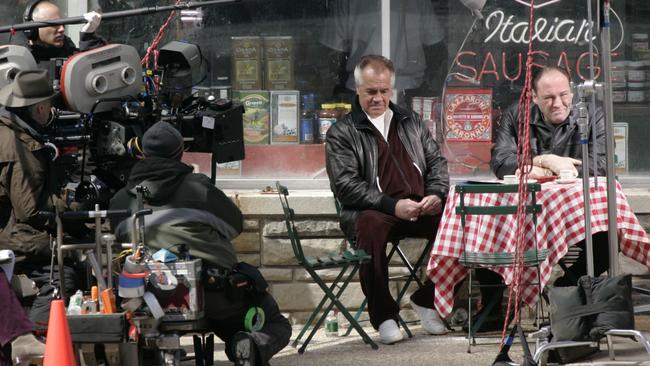
Oscar-winning director Alex Gibney rather self-effacingly describes himself as a “filmmaker with journalistic baggage”, even though Esquire called him “the most important documentarian of our time”. And he’s earned almost countless awards.
He won his Academy Award for Taxi to the Dark Side, a lacerating film exposing the Bush administration’s informally excused policy of torturing suspects during the war on terror.
There was Enron: The Smartest Guys in the Room and HBO’s Emmy-winning Going Clear: Scientology and the Prison of Belief and, more recently, the brilliant The Inventor: Out For Blood In Silicon Valley.
Gibney’s latest is Wise Guy David Chase and The Sopranos, a highly cinematic biography of the enigmatic creator of the groundbreaking HBO cable network TV show – which, as Chase tells Gibney, came close to never existing in the first place.
It’s from Gibney’s Jigsaw Productions, a company which for years has explored the way America has been shaped by shadowy, discreet influences like dodgy pharmaceutical companies, corrupt politicians, accounting frauds, and financial malfeasance, calling out abuses of power.
His attitude to documentary is simple, even if his films are complex and deeply layered, propulsive, and sometimes almost kaleidoscopic in their overlapping imagery. “I think they’re films, they’re cinema,” he says bluntly in interviews. “And so, the question is how can you fulfil the bargain with the audience in a way to take them on a journey and ask them provocative questions by showing images that provoke them to think about important issues?”
He has sometimes veered away from what he calls “moral inquiry”, or as the company states, “people who are ruining the world”, making films celebrating people with extraordinary stories to tell, who have shaped the world in provocative ways.
There was Magic Trip: Ken Kesey’s Search for a Kool Place, an inventive time travel fractured narrative experience about the famous 1964 bus trip taken by Ken Kesey and the Merry Pranksters; and Gonzo: The Life and Work of Dr Hunter S. Thompson, a celebration of his gleeful iconoclasm, told in the words of Thompson himself, from his letters, articles and books and read – on camera and off – by Johnny Depp.
Now it’s The Sopranos and the wise guy who wrote, produced and directed the epic mob drama. And while he wasn’t “wised up” in the Mafia sense – someone inducted into their ranks, usually for killing somebody – he managed to stunningly knock off more characters than any other show.
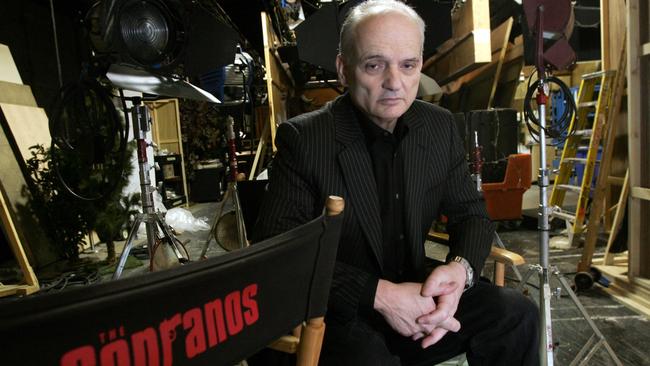
“People watch mob shows because they like to see murders and betrayals,” he says. (Lorraine Bracco, the stunning Dr Melfi in the show, recalls that if Chase asked to have dinner or lunch with you, it meant you were about to be killed off.)
For those who were asleep at the time like many here – its 86 episodes languished on the Nine Network in the witness protection timeslot, annoying the hell out of the show’s local aficionados – The Sopranos transformed the drama genre. And TV itself, the harbinger of its newest golden age.
Chase’s idiosyncratic, often disturbing, operatic saga represents the turning point when TV shows became better than classy mainstream movies. Its creator, who had spent decades as a journeyman producer and writer, becoming, almost overnight, one of the most commanding names in all of TV.
“I was at the end of my career really; I was literally going to quit working in television and go to work writing features on spec,” he tells Gibney.
“The Sopranos came up. It was like I had been in the middle of a terrible ocean, and I had landed on a beautiful palm-covered island – I thought my life was saved.”
And if you invested almost eight years of emotional empathy in Chase’s unprintable catchphrases, deconstructivist parables, morbid poetry, dramatic ellipsis, and humanly complex, often mystifying dark TV, you will love this two and a half hour film.
“We don’t want to do another television project,” Chase told his cinematographer David Sakharov, a delight to watch in the film, often cackling with laughter. “Let’s break all the rules.”
And he and Sakharov developed a rare, for the time, artistic partnership in which the photography became a storytelling device with its use of long takes, wider angled lenses, with the camera following the actors, often hand-held, putting the audience in the character’s perspective, instead of being conventionally locked off.
But Chase had doubts from the start. “I don’t know,” he says to Sakharov in a clip. “Who’s going to f..king watch this shit?”
The Sopranos, structured around James Gandolfini’s anti-hero mob boss Tony Soprano, juxtaposes the angst of middle-class family life with the psychopathology of the “mob family”, the latter bringing the former into a kind of wonderful, and often comic, dramatic relief.
The juxtaposition of gangster violence with mundane domestic life drolly, and sometimes sadly, mixes exhilaration and pathos, revulsion, and empathy.
It’s really about the evils lurking behind the masks of rather average people and places, the world of ordinary monstrosity. The way we all fantasise about making the big kill and getting away with it; the way people lie nearly every hour of their lives; and the way each of us struggles to satisfy the needs of family and ourselves.
Gibney’s film is framed by his interview with Chase, resonantly held on a replica set of the psychiatrist’s office occupied so stoically by unsmiling Bracco’s Jennifer Melfi. In the show she’s calm and composed, appalled by his advances, and doesn’t rush to judgment when analysing an untreatable psychopath in Tony Soprano, a huge man squeezed into a tiny chair.
(In the film Bracco recalls the project’s odd beginnings. Already a star for Scorsese’s Goodfellas, she thought The Sopranos, produced by HBO, then “the bargain basement of TV”, full of old movies and boxing events, was “one of those fly-by-night productions – cast it, shoot it.” Little did anyone know. )
And just as Melfi watches Tony go through frequent mood swings during their time together, so does Gibney with Chase, though the director never storms out of the set, either cursing at him or walking out in silence.
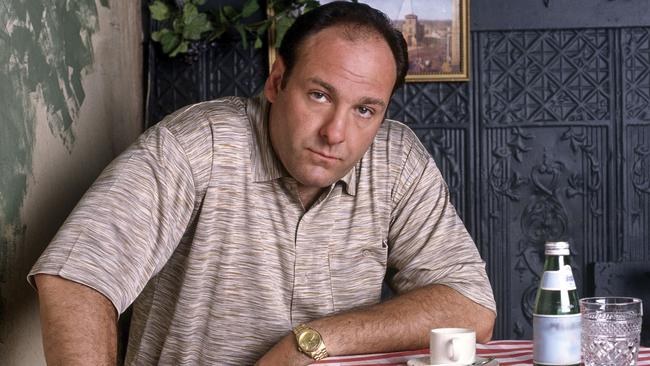
Chase, as one of his writers says in the show, tends to be “dour and so miserable”, a little hunched and defensive, quiet, and rather pensive.
He says at one point that while he was prepared to be part of Gibney’s film about the show, “I didn’t know it was going to be about me.” But often surprisingly he chuckles and laughs at what he’s saying, as if finding meaning for the first time under Gibney’s questioning. He can also be sweetly sincere, and at times almost cruelly direct. (In the many sequences of him directing, the behind-the-scenes footage is fascinating to watch – he is blunt, offering little to his actors but “cut” and “good”, and occasionally “f..king great”.)
And, like Melfi’s sessions, his interactions with Gibney present as a kind of experiment in self-knowledge, Gibney a little like a benign priest guiding Chase towards meaning.
Gibney says that this kind of interview is like “settling in for a glass of wine with a friend and having a long conversation – you know you’re not there to quickly exchange some information and move on”.
And what emerges is an intriguing investigation into Chase’s creative process, and the intimate connections between his own life and many of his characters, especially his mother. The show, he reveals, was kind of like therapy.
Livia Soprano, Tony’s mother, played so brilliantly by Nancy Marchand, is a woman of deep repressed rage, miserable, cagey, and unpleasantly pessimistic, who became worse with age. “For years, everyone told me I had to write something about my mother,” Chase tells his interlocutor. “My mother was just nuts.”
Gibney’s film is crammed with stories, presented in his characteristic style of a dazzling series of fragments, shards, jigsaw pieces and reflected images. There are interviews with the other show writers, producers, executives, and actors, including Bracco, Edie Falco, and Michael Imperioli, and montages of performers auditioning, including the charismatic Gandolfini grabbing the part of Tony. (Many of the actors thought they were testing for a film about opera singers.)
And in the first episode Chase takes us through his upbringing in an Italian American family in north New Jersey; his early career and the influence of Jean-Luc Godard, and his life as “a network guy” in TV. He tells us how he conceived the show as a feature starring Robert De Niro and Anne Bancroft; how all the networks knocked his pilot back; and how HBO was suddenly ideally positioned to launch his vision after The Larry Sanders’ Show’s success.
And he reveals how the show cunningly satirised TV itself, surely part of its revolutionary success. “It was about money and death,” he says. “And they are related somehow. It was capitalism in the raw sense. But it was on television which was the instrument that capitalism used to sell.”
For anyone interested in both drama and TV itself – how it’s created, performed, and sold – it’s thrilling to have a character so rich to explore.
Wise Guy David Chase and The Sopranos streaming on Binge and Foxtel from Sunday, 8.30pm.


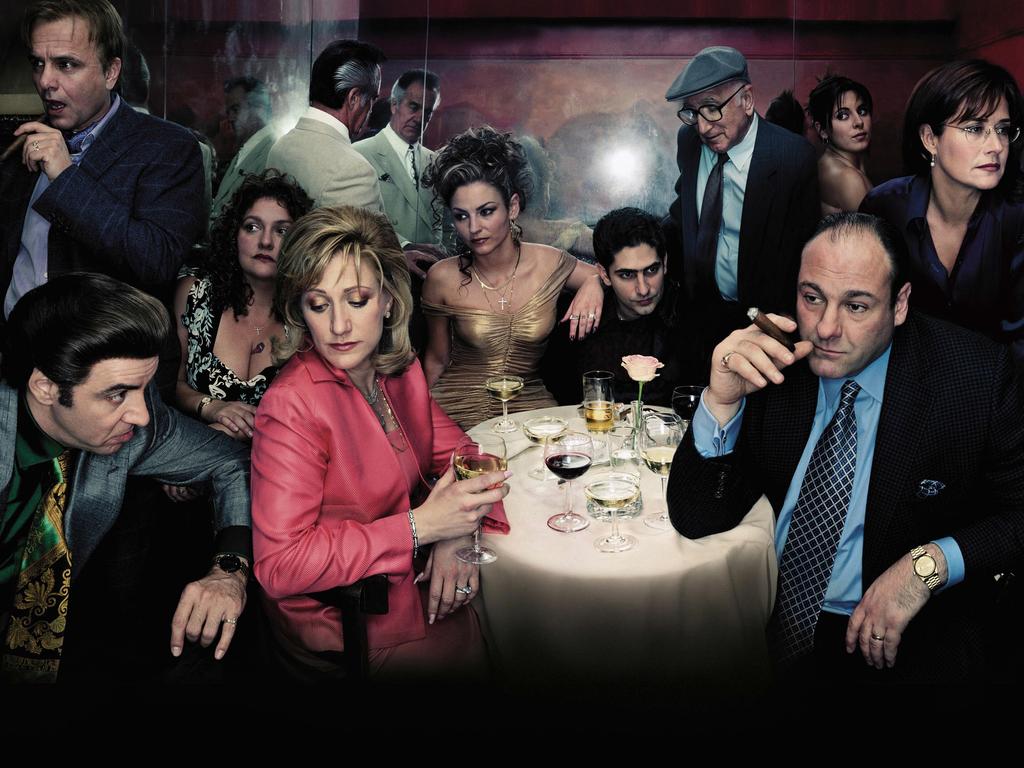

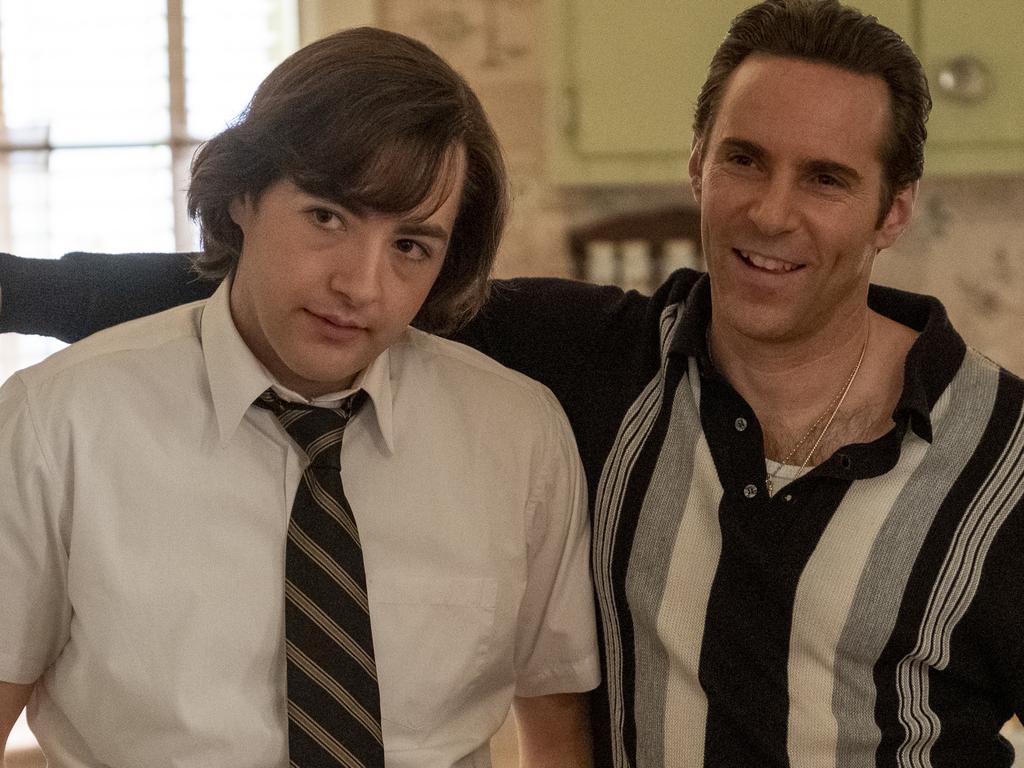
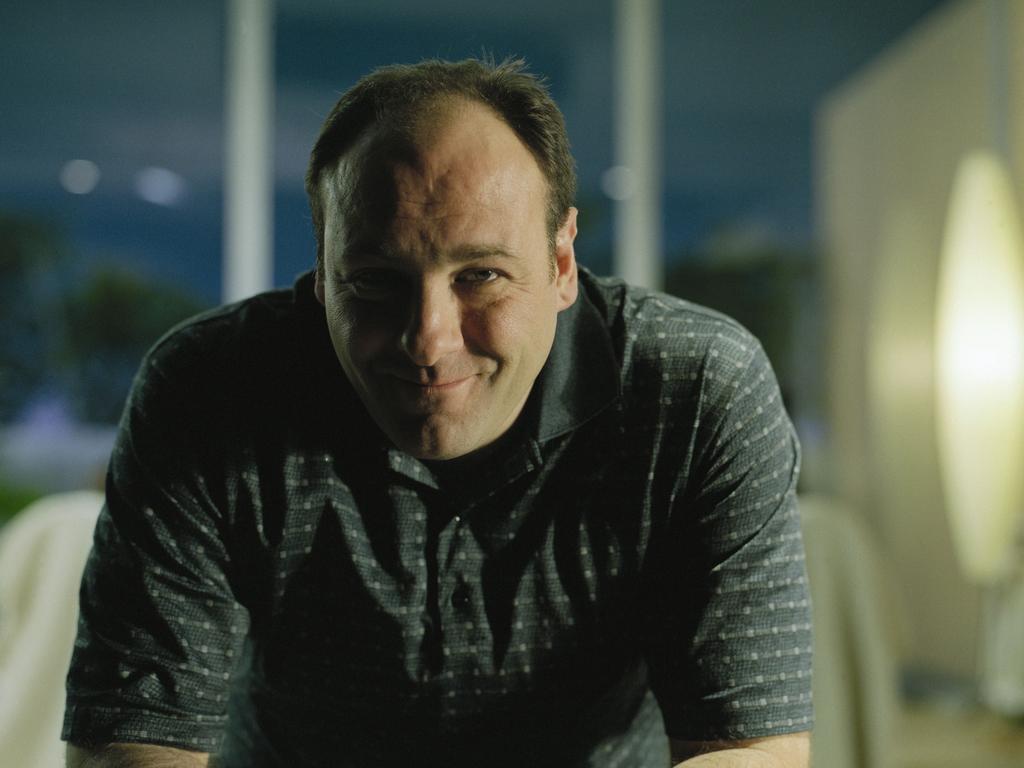


To join the conversation, please log in. Don't have an account? Register
Join the conversation, you are commenting as Logout